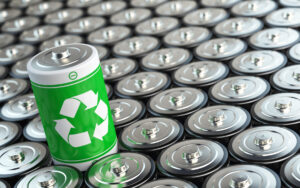British Columbia is in a position to lead Canada in electric vehicle battery recycling, says a new report from the Pembina Institute, but the province needs to speed up its five-year recycling regulation plan

Pembina Institute encourages British Columbia to expedite its battery recycling program.
British Columbia is in a position to lead Canada in electric vehicle battery recycling, says a new report from the Pembina Institute, but the province needs to speed up its five-year recycling regulation plan
British Columbia is leading Canada in the rapid and widespread adoption of electric vehicles, but as these vehicle numbers surge so too will the spent batteries once used to power them. A new report from Pembina Institute is now calling for the province to step up and become the regional leader of not only EV adoption, but EV battery recycling.
With an average battery lifespan of eight to 15 years, many of the first-generation EVs that hit the road over a decade are now reaching the end of their battery life.
According to the report, B.C. is well-positioned to leverage its position as an early adopter of EVs to play a key role in recycling the metals and minerals from batteries, which can significantly reduce life-cycle emissions in the transition to sustainable transportation.
“Given the incredible uptick in EV sales in British Columbia, we have a great opportunity to take advantage of repurposing and recycling batteries to minimize waste and reduce the need for raw materials from mining,” said Nikki Skuce, Director, Northern Confluence Initiative in a press statement. “EV manufacturers are looking to source materials responsibly, and B.C. can help do that by improving mining regulations and investing now in recycling capabilities.”
Province’s recycling plan
In September, the B.C. government expanded its Extended Producer Responsibility
Five Year Action Plan — a policy that generally makes producers responsible for the collection and recycling of their products — to include the recycling of EV and hybrid batteries.
The plan is taking a phased approach, meaning that the regulated recycling of EV and hybrid types batteries won’t begin until late 2023 or early 2024, with all programs becoming operational by 2026.
The Pembina report is, however, calling for the B.C. government to take action sooner and move the implementation of its recycling regulations from 2026 to 2023, “in order to address the growing stock of end-of-life batteries.”
The report, in addition, is urging the province to work with the federal government in creating content targets for incorporating recycled metals and minerals into battery cells produced in Canada.
This will “close the loop on the materials chain and spur investment in recycling capacity,” reads the report.
A battery labelling standard should also be established, says the report, in order “to ensure cell chemistry information can be used to simplify end-of-life recycling.”
Path to cleaner transportation
Under its provincial Clean BC Roadmap to 2030 plan, the B.C. government aligned with the federal target of 100 per cent new ZEV sales by 2035 and proposed a more aggressive interim timeline that will see new ZEV sales targets reach 26 per cent by 2026 and 90 per cent by 2030.
To date, there are more than 60,000 light-duty EVs are currently registered in the province, according to the CleanBC roadmap and 9.4 per cent of all new light-duty vehicle sales were zero-emission vehicles in 2020.
“The CleanBC Roadmap to 2030 will drive more electric vehicles on the road and also envisions a circular economy. Facilitating EV battery recycling and investing in local recycling infrastructure will support B.C.’s transition to a clean economy,” said Karen Tam Wu, regional director, British Columbia, Pembina Institute in a press statement.






